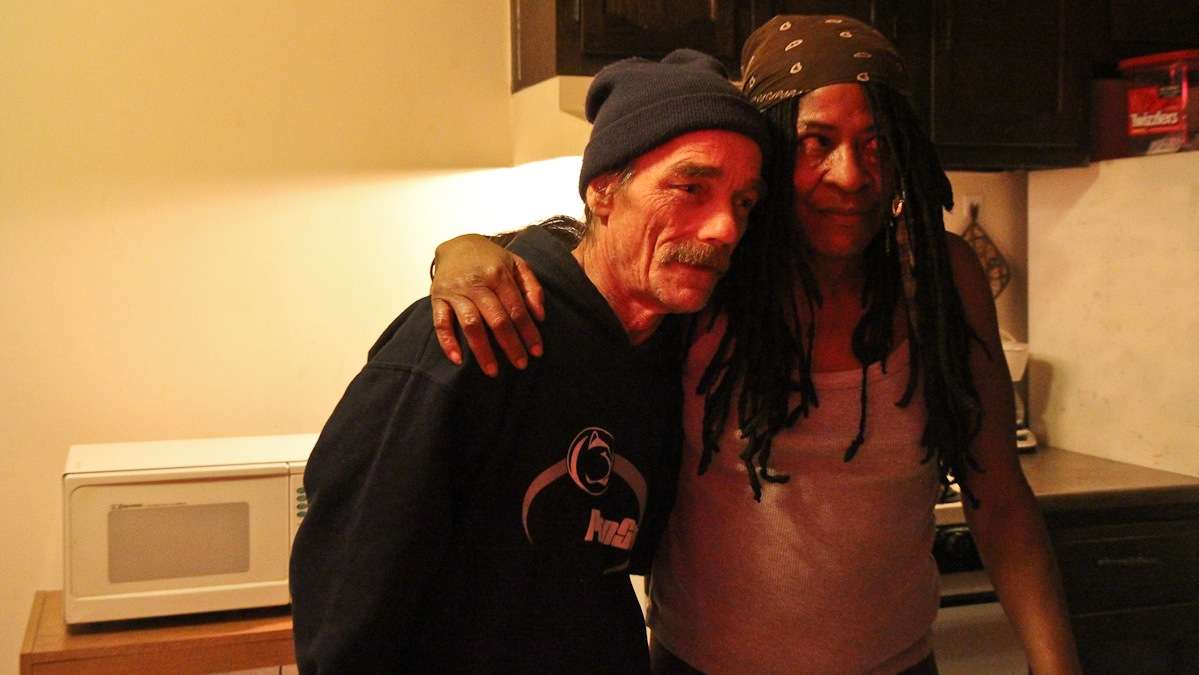Report: 2.8 million in NJ living in poverty

Steve Hamburger and Vera Tims met in Lakewood, New Jersey's Tent City (Kimberly Paynter/WHYY)
Nearly one third of New Jereyans are broke, according to Legal Services of New Jersey’s ninth annual report on poverty.
Two million adults and 800,000 children are impoverished across the Garden State, according to the report from LSNJ, a nonprofit that provides free legal assistance to poor residents.
“The Great Recession formally ended in 2009. The nation has been in a recovery since then. New Jersey lags the country going in and lags the country coming out,” said LSNJ President Melville Miller.
One of the wealthiest states in the union, New Jersey also boasts the third-highest level of long-term unemployment, according to the report.
Miller said part of that stems from a loss of working-class jobs that had been dependable in years past.
“Manufacturing jobs in particular and to some degree construction jobs have been declining. Those are the jobs historically that have paid the blue collar workers the highest wages,” he said. “Those jobs have been steadily disappearing over a matter of decades. That disappearance is still going on.”
Other factors such as lower educational attainment, a lack of affordable housing, and wage decline have also driven up poverty rates in New Jersey.
“But even New Jersey’s jobs picture has improved,” said Miller. He said the paradox in New Jersey is that poverty rates remain near record highs despite an influx of jobs since the recession ended.
LSNJ’s report also offers suggestions of how New Jersey can combat rising poverty rates, such as maintaining and increasing welfare benefits for residents teetering on the edge of poverty.
“We have to shore up the safety net programs. We have to make sure that we understand what the needs are and that the programs we have are really meeting those needs now,” he said.
Miller also suggested the state offer more affordable housing to low-income residents and continuing to expand health care access.
One silver lining, according to LSNJ’s assessment, is that many more New Jerseyans obtained health insurance in 2014, thanks to subsidies offered by the Affordable Care Act and expanded eligibility for Medicaid.
WHYY is your source for fact-based, in-depth journalism and information. As a nonprofit organization, we rely on financial support from readers like you. Please give today.




